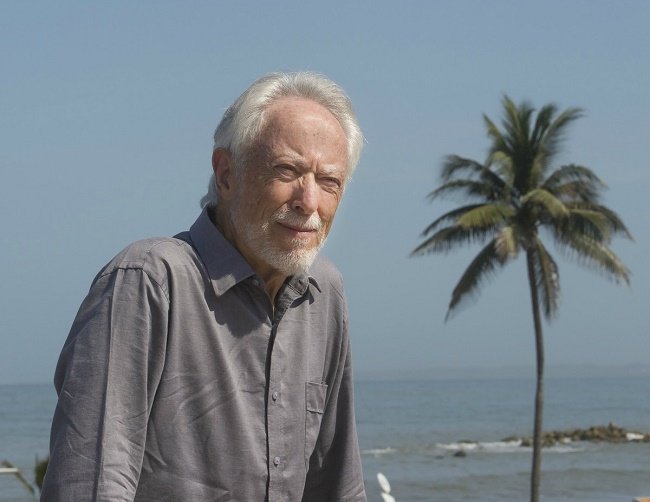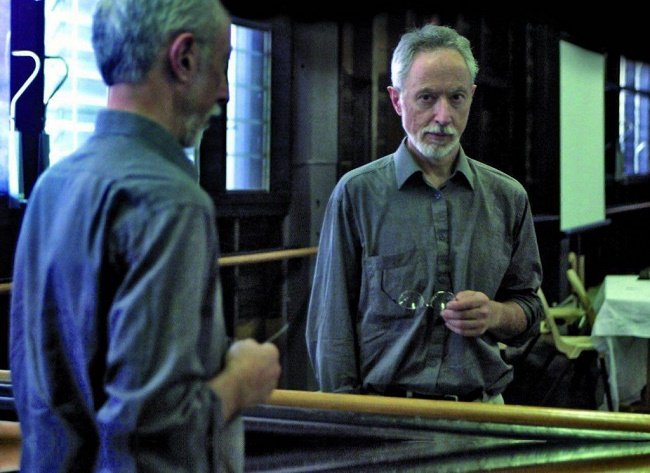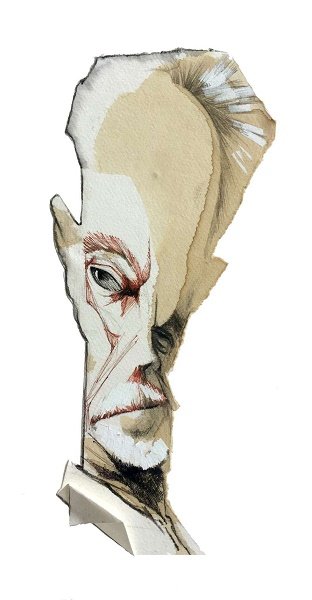Homenaje al gran escritor sudafricano J. M. Coetzee | Tribute to the great South African writer J. M. Coetzee
ESP
Hoy cumple 84 años el escritor sudafricano más conocido, Premio Nobel de Literatura 2003, J. M. Coetzee, como siempre se firma, que se extiende como John Maxwell Coetzee. Nació el 9 de febrero de 1940 en Ciudad del Cabo (Sudáfrica), como se sabe, país que vivió durante muchos años bajo el régimen de segregación racial contra la población negra, impuesto por la élite de raza blanca, conocido como apartheid, y que fuera combatido por movimientos y líderes sociales, entre los que destacó protagónicamente Nelson Mandela, primer presidente negro del país (1994-1999), una vez abolido el apartheid.
Contra ese abominable régimen se pronunció Coetzee en su creación literaria, especialmente en sus novelas, una de las razones para otorgársele el Nobel. Matemático e informático de profesión, se trasladó tempranamente a Inglaterra y a Estados Unidos, y luego a Australia, país que le concedió la nacionalidad en 2006, aunque siempre vuelve a su Sudáfrica natal.
ENG
Today is the 84th birthday of the best known South African writer, Nobel Prize for Literature 2003, J. M. Coetzee as always signed, which is extended as John Maxwell Coetzee. He was born on February 9, 1940 in Cape Town (South Africa), as is known, a country that lived for many years under the regime of racial segregation against the black population, imposed by the white elite, known as apartheid, and fought against by social movements and leaders, among whom Nelson Mandela, the first black president of the country (1994-1999), once apartheid was abolished, stood out as a protagonist.
Coetzee spoke out against this abominable regime in his literary work, especially in his novels, one of the reasons why he was awarded the Nobel Prize. A mathematician and computer scientist by profession, he moved early on to England and the United States, and then to Australia, the country that granted him citizenship in 2006, although he always returns to his native South Africa.

Conocí quizás tardíamente la obra de Coetzee, a comienzos del 2000, y desde entonces traté de acceder a su extensa obra, sobre todo novelística, casi toda adquirida en forma impresa. Confieso que es uno de mis novelistas favoritos desde entonces.
Su tratamiento ficcional de la historia –racial, política, religiosa, literaria, etc.–, va desde En medio de ninguna parte (1977), novela sobre la relación colonizador-colonizado, pasando por Esperando a los bárbaros (1980), novela antipoder de enorme pertinencia, El maestro de Petersburgo (1994) –recreación de los últimos años de Dostoyevski, uno de sus maestros– hasta, la que aquí puedo indicar, Hombre lento (2005). Sus novelas sobre la vida de Jesús (de 2013 a 2019) no las he podido encontrar. En la mayoría de sus relatos novelísiticos, sin lugar a dudas, Coetzee va ficcionando también parte de su vida, pero ha escrito libros de autoficción, donde su biografía es más explícita, como Verano (2009), de las que he leído (precedida por Infancia y Juventud).
Además, habría que resaltar sus libros de ensayos, como esa hermosa publicación titulada Cosas extrañas (2002), textos escritos entre 1986 y 1999 en los que rinde homenaje a sus más queridos escritores, como Defoe, Dostoyevski, Kafka, Borges, entre otros.
I became acquainted with Coetzee's work perhaps belatedly, in the early 2000s, and since then I have tried to access his extensive oeuvre, especially his novels, almost all of which have been acquired in print. I confess that he has been one of my favorite novelists ever since.
His fictional treatment of history -racial, political, religious, literary, etc.- ranges from In the Middle of Nowhere (1977), a novel about the colonizer-colonized relationship, through Waiting for the Barbarians (1980), an anti-power novel of enormous relevance, The Master of Petersburg (1994) -recreation of the last years of Dostoyevsky, one of his masters- to, the one I can point out here, Slow Man (2005). His novels on the life of Jesus (from 2013 to 2019) I have not been able to find. In most of his novelistic stories, undoubtedly, Coetzee is fictionalizing also part of his life, but he has written autofiction books, where his biography is more explicit, such as Summer (2009), which I have read (preceded by Childhood and Youth).
In addition, we should highlight his books of essays, such as that beautiful publication entitled Strange Things (2002), texts written between 1986 and 1999 in which he pays tribute to his most beloved writers, such as Defoe, Dostoyevski, Kafka, Borges, among others.

Siempre será muy difícil escoger citas de novelas, y más tratándose de las de Coetzee, de una riqueza y complejidad particular. Trataré de hacerlo, en lo posible.
It will always be very difficult to choose quotes from novels, especially those of Coetzee, of a particular richness and complexity. I will try to do so, as far as possible.
From In the middle of nowhere.–¿Sabes cómo me siento, Anna? Como un enorme vacío, un vacío colmado por una gran ausencia, una ausencia que no es más que el deseo de colmarse, de realizarse, por entero. Con todo, al mismo tiempo sé de sobra que nada podrá colmarme, porque esa es la primera condición de la vida: desear siempre. De otro modo, la vida dejaría de ser.
-Do you know how I feel, Anna? Like an enormous emptiness, an emptiness filled by a great absence, an absence that is nothing more than the desire to be filled, to be fulfilled, completely. Yet, at the same time, I know that nothing will be able to fulfill me, because that is the first condition of life: to always desire. Otherwise, life would cease to be.
From Waiting for the barbarians.¿Por qué no podemos vivir en el tiempo como el pez en el agua, como el pájaro en el aire, como los niños? ¡Los imperios tienen la culpa! Los imperios han creado el tiempo de la historia. Los imperios no han ubicado su existencia en el tiempo circular, recurrente y uniforme de las estaciones, sino en el tiempo desigual de la grandeza y la decadencia, del principio y el fin, de la catástrofe.
Why can't we live in time like the fish in the water, like the bird in the air, like the children? Empires are to blame! Empires have created the time of history. Empires have not placed their existence in the circular, recurrent and uniform time of the seasons, but in the uneven time of greatness and decadence, of beginning and end, of catastrophe.

From The Master of Petersburg.He perdido mi sitio en mi alma, piensa.
Recoge su gorro y abandona su alojamiento. No reconoce el gorro, no tiene idea de quién es el calzado que lleva puesto. A decir verdad, nada reconoce de sí mismo. Si ahora tuviera que mirarse en un espejo, no le sorprendería que fuese otro rostro el que encontrase, el que lo mirase a ciegas.
I have lost my place in my soul, he thinks.
He picks up his cap and leaves his lodgings. He does not recognize the cap, has no idea whose footwear he is wearing. To tell the truth, he recognizes nothing of himself. If he were to look at himself in a mirror now, he would not be surprised if he were to find another face looking back at him blindly.
From Slow Man.–Pues bueno, se equivoca, Marijana. No es así en absoluto. (...) Puedo ser lábil, pero ser lábil no es una aberración. Todos deberíamos ser lábiles, todos. (...) Tendríamos que conmocionarnos a menudo. Deberíamos armarnos de valor y mirarnos en el espejo, aunque no nos guste lo que vemos en él. Y no me refiero a los estragos del tiempo. Me refiero a la criatura que está atrapada detrás del cristal y cuya mirada normalmente procuramos evitar.
-Well, you're wrong, Marijana. It's not like that at all. (...) I may be labile, but being labile is not an aberration. We should all be labile, all of us. (...) We should be shocked often. We should take courage and look at ourselves in the mirror, even if we don't like what we see in it. And I don't mean the ravages of time. I am referring to the creature that is trapped behind the glass and whose gaze we normally try to avoid.
Como dije, la perspicacia y hondura de la escritura ficcional de Coetzee nos toca profundamente, y quisiéramos que el tiempo de vida cronológica nos alcanzara para poder volver a leerlo, así como quisiéramos volver a Dostoyevski, a Kafka o a Borges. Ojalá puedan leer algunas de sus magníficas novelas.
As I said, the insight and depth of Coetzee's fictional writing touches us deeply, and we wish we had enough chronological time to read him again, just as we would like to return to Dostoyevsky, Kafka or Borges. May you be able to read some of his magnificent novels.






https://inleo.io/threads/josemalavem/re-josemalavem-2mnkh7npd
The rewards earned on this comment will go directly to the people ( josemalavem ) sharing the post on LeoThreads,LikeTu,dBuzz.
Uno de mis novelistas favoritos, @josemalavem. Recuerdo especialmente el impacto que me causaron Desgracia, Los años de hierro y El maestro de San Petersburgo. No he tenido oportunidad de leer la trilogía La vida de Jesús.
Gracias por tu visita, estimado @rjguerra. Desgracia es conmovedora. Saludos.
Creo que no voy a estar tranquilo hasta que lo busque...
Gracias @josemalavem
Te lo recomiendo completamente, @emiliorios. Saludos.
Gracias @josemalavem
Esta publicación ha recibido el voto de Literatos, la comunidad de literatura en español en Hive y ha sido compartido en el blog de nuestra cuenta.
¿Quieres contribuir a engrandecer este proyecto? ¡Haz clic aquí y entérate cómo!